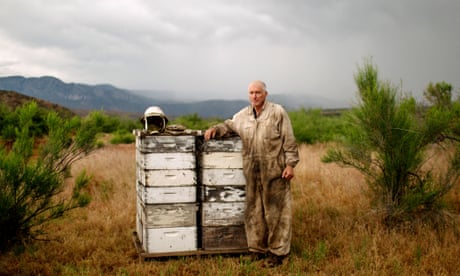U.S. Honeybees Suffer Second Deadliest Season on Record
NATURE
Figures published today reveal beekeepers in the U.S. lost an estimated 48% of their honey bee colonies in 2022-23. According to an annual survey that tracks the state of managed hives, this is the second highest death rate on record after 2020-21's 51%. Honey bees are crucial to our food supply, pollinating over 100 different crop types.
As reported by Bee Informed, a national collaboration of leading research labs and universities in agricultural science, the most prominent cause of colony death reported by commercial beekeepers over the year was “varroa destructor” - a parasitic mite that attacks and feeds on honey bees. In the summer, 'Queen issues' were the second most common reason cited, followed by 'adverse weather'.
According to the publication, "although the total number of honey bee colonies in the country has remained relatively stable over the last 20 years (~2.6 million colonies according to the USDA NASS Honey Reports), loss rates remain high". This puts beekeepers under "substantial pressure" to create new colonies each year.

US honeybees suffer second deadliest season on record
Nearly 50% of US bee colonies died off last year, although efforts have helped the overall bee population remain ‘relatively stable’
The US’s honeybee hives just staggered through the second highest death rate on record, with beekeepers losing nearly half of their managed colonies, an annual bee survey found.
But by using costly and herculean measures to create new colonies, beekeepers are somehow keeping afloat. Thursday’s University of Maryland and Auburn University survey found that even though 48% of colonies were lost in the year that ended 1 April, the number of US honeybee colonies “remained relatively stable”.
Honeybees are crucial to the food supply, pollinating more than 100 of the crops we eat, including nuts, vegetables, berries, citruses and melons. Scientists said a combination of parasites, pesticides, starvation and effects of the climate crisis keep causing large die-offs.
Last year’s 48% annual loss is up from the previous year’s loss of 39% and the 12-year average of 39.6%, but it’s not as high as 2020-2021’s 50.8% mortality rate, according to the survey, which was funded and administered by the non-profit research group Bee Informed Partnership. Beekeepers told the surveying scientists that a 21% loss over the winter is acceptable and more than three-fifths of beekeepers surveyed said their losses were greater than that.
“This is a very troubling loss number when we barely manage sufficient colonies to meet pollination demands in the US,” said former government bee scientist Jeff Pettis, president of the global beekeeper association Apimondia, which wasn’t part of the study. “It also highlights the hard work that beekeepers must do to rebuild their colony numbers each year...”
Read more > The Guardian




No comments:
Post a Comment